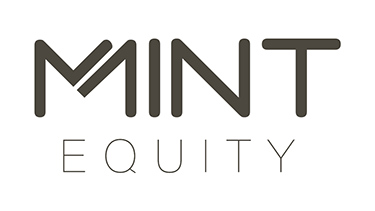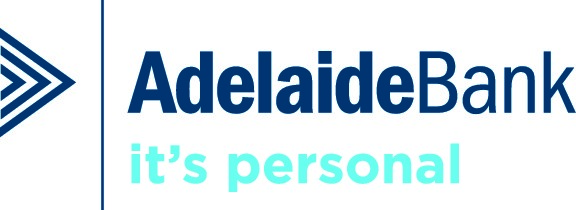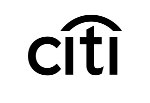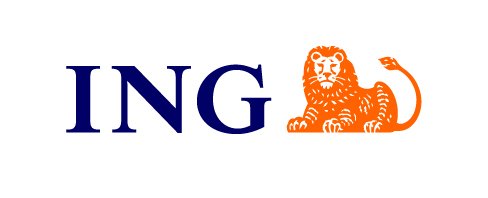Low Deposit Home Loans
What is a low deposit home loan?
Essentially, a deposit less than 20% is considered a low deposit. Once you borrow more than 80% the lender considers the home loan small deposit higher risk than a loan that is secured with a 20% deposit. If you don’t have the full amount required, the bank faces an increased risk when they lend to you.
Luckily, borrowers have the option to purchase a property and secure a low deposit home loan with between 2% and 20% deposit via government schemes and utilising family guarantees (bank of mum and dad) or Lenders Mortgage Insurance (LMI). And if you already own property, you can even purchase an additional property with zero cash deposit by utilising the equity in your existing property.
What are your options if you don’t have the full 20% deposit?
You can pay Lenders Mortgage Insurance (LMI) which reduces the risk to the bank
You can utilise a government scheme where the government will pay the LMI costs for you
Consider having a guarantor (eg, mum and dad) on your home loan
LMI waiver options for professionals such as Doctors, Lawyers, Chartered Accountants
Let’s take a look at the different options for low deposit mortgages;
0% deposit – Utilise the available equity in a property you already own or a family guarantee
2% deposit – Family Home Guarantee
5% deposit – Regional Home Guarantee
5% deposit – First Home Guarantee
5% deposit – Utilise a family member’s property as guarantor
10% to 19% deposit - LMI waiver available for professionals in medical, accounting, sport and legal
15% deposit - LMI waiver available via selected lenders
16% to 19% deposit – Pay Lenders Mortgage Insurance (LMI) or utilise a specific lender that offers a LMI waiver
How to find the best low deposit home loans?
With access to over 40 lenders, the team at Mint Equity can provide you with guidance to secure the best low deposit home loan to suit your needs and timeline. Experienced low deposit brokers are key to identifying the most suitable home loan utilising a small deposit. There are many options, products and methods to reduce your upfront and ongoing costs, so talking to the experts early in the process will help eliminate any concerns you may have about low deposit home loans.
How do low deposit loans work?
0% home loan deposit
A no deposit home loan is also referred to as a home equity loan. A home equity loan enables you to utilise the equity you have in your home or investment property as a deposit instead of cash. The process involves cross-collateralising the properties as a collective group and then applying the Loan to Value Ratio calculation against the total loan amount and total value of the properties. The LVR would need to be collectively 80% or below to utilise this option.
A family guarantee option can be utilised for a 0% home loan deposit. For more information see below how a Family Guarantee (or the bank of mum and dad) can help you get into the property market faster.
2% home loan deposit
If you are a single parent with at least one dependent child, you may qualify for the Family Home Guarantee which enables you to purchase a property and secure a home loan with only 2% deposit. There are only a few lenders which provide the low deposit loan, however working with a low deposit loan mortgage broker like Mint Equity will help you navigate the lender options. The scheme is provided by the federal government and more information can be found on our First Home Buyer page.
5% home loan deposit
Government schemes
If you’ve managed to save 5% deposit, there are a few more options when it comes to securing a low deposit mortgage. Low deposit home loans for First Home Buyers are available via two different government schemes; the Regional Home Guarantee and the First Home Guarantee. You can find out more about these schemes on our First Home Buyer page.
Bank of mum and dad
Even if you’ve owned property before, the ‘bank of mum and dad’ can provide options for buyers with only a 5% deposit. The borrower’s parents can either provide ‘gifted funds’ to top up the deposit amount or they can provide their own property as security for the remaining deposit amount.
Many people think that the entire family home is put at risk when the parents use their property as guarantee, but the reality is it is only a portion of the property value used for the deposit amount that is being secured.
The largest benefit of selecting a low deposit mortgage with mum and dad as the guarantors means the cost of Lenders Mortgage Insurance is reduced significantly.
We work closely with both the borrower/s and guarantor/s to guide them through the process and ensure all parties are comfortable with the process, risks and benefits. The end goal is to release the parents’ property from the borrower’s loan as quickly as possible, which can be done by reassessing the loan when the property value increases or when the loan amount is reduced.
The good news is in most cases, mum and dad don’t need to refinance their home loan when providing the guarantee and some lenders don’t need to assess mum and dads’ borrowing capacity as part of the low deposit home loan application.
What is Lenders Mortgage Insurance (LMI)?
Lenders Mortgage Insurance is a product which protects the bank in the event that you aren’t able to repay your home loan. LMI is only required when you borrow more than 80% and the insurance premium will be based on your Loan to Value Ratio (LVR). Essentially, if you borrow more, you are higher risk and therefore your insurance premium increases.
LMI premiums are calculated on a sliding scale, so you will pay less LMI if you borrow 85% vs 90%.
“The entire Mint Equity team were professional, informative and proactive throughout our investment property purchase. Special thanks to Zac and Ben for getting our request across the line in such a short timeframe, in a continuously changing market. Highly recommended, and will be a returning customer for years to come.”
LMI can get you into the property market sooner
Whilst nobody likes to pay extra, paying LMI and getting into the property market sooner may actually save you money in the long run.
For example, if the property market is in a buyer’s market cycle and property prices are lower, you may save money on the purchase price if you get into the market before property prices increase. The property you purchase may also increase in value during the time you could have waited to save more of a deposit. Getting into the property market sooner rather than later also reduces the amount of time and money you spend renting.
You can also capitalise the LMI costs on top of the loan so you don’t have to pay the insurance premium with cash. Adding the LMI premium cost to the total loan amount enables you to pay the premium over the term of the loan, which means you don’t have to keep cash aside and further reduce your deposit amount.
How we can help low deposit home loans Australia wide
No matter where you are located, low deposit home loans Brisbane, Gold Coast, Sydney, Newcastle or the Central Coast, our team are here to help you choose a home loan that suits your needs. Our team are well versed in securing low deposit loans for clients all over Australia with the ability to communicate via phone, email, video calls and SMS updates throughout the application and settlement process.
Frequently Asked Questions
-
All lenders advertised interest rates are negotiable, that’s why mortgage brokers are pivotal in getting the lowest interest rate for property owners. Mortgage brokers request a discount on the interest rate and the amount of discount often depends on the LVR (Loan to Value Ratio). Often lenders scale their advertised interest rates depending on the LVR. You’ll receive a higher discount on your interest rate if you have a lower LVR. Low deposit home loans will still receive a discount on the advertised interest rate, however the discount won’t be as high as when you borrow less than 80%.
-
The majority of lenders will offer home loans with up to a 90% LVR, however only a few will offer home loans with an LVR of 95%. For low deposit home loans via the government schemes, there are only a select group of lenders on the panel, so your options for 2% home loan will be reduced. As Mint Equity has access to over 40 lenders, we will provide you with a comprehensive list of the lenders that suit your small deposit requirements.
-
The answer really depends on what you are trying to achieve and what the market conditions are at the time. If the property market is in decline and you have an opportunity to purchase a property under market value, you might prefer to pay LMI in order to secure the property before prices increase. Alternatively, if budgeting is your key requirement and you want to keep your repayments as low as possible, saving more for your deposit and reducing your loan amount might be the better option. We can provide you with funding positions to help you visualise how much cash you need and what your repayments will be.
-
LVR is a basic calculation of the amount you are borrowing vs the value of the property. For example, if you borrow $500,000 to purchase a property valued at $550,000 your LVR is calculated;
$500,000 / $550,000 = 0.90 x 100 = 90%
We have multiple home loan and savings calculators available to help you identify how much deposit you will need.
-
We take the headache out of low deposit loans by assessing the best available products that fit with your lifestyle and strategy.
It’s our experience that enable us to give our clients the best outcome and chance of approval. In a complex lending market, it’s this experience that sets us apart from other mortgage brokers.
-
Mint Equity covers the full spectrum of property and business finance.
Investment property loans
Construction and development loans
Personal loans

















































